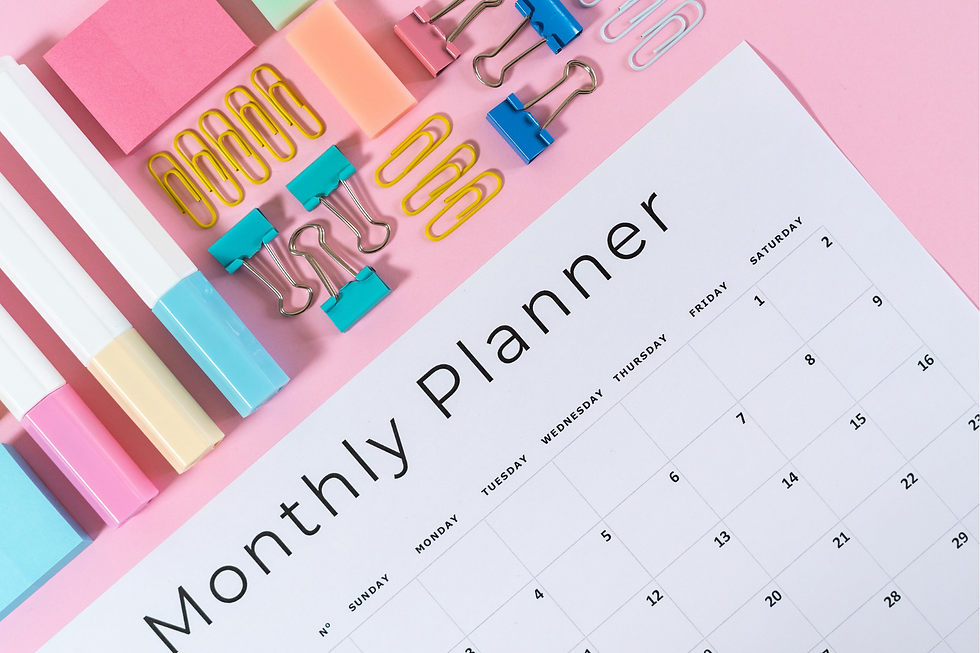The Planner That Changed My Science Classroom: Why Every Science Teacher Deserves One That Actually Works
- Androy Bruney

- Jul 17, 2025
- 3 min read
Generic Teacher Planners Just Don’t Cut It for Science
There was a time I genuinely thought I just wasn’t a “planner person.”
I’d try the cute planners every summer—pages of pastel layouts and empty monthly spreads—and I’d tell myself this was the year I’d stay on top of things.
But two weeks into the semester, I was juggling sticky notes, digital lesson plans, Google Docs for labs, and three separate spreadsheets for equipment checkouts and student groups.
Sound familiar?
Most planners are made for general classroom needs. And science teachers? Well… we don’t have general classroom needs. We have goggles. Chemicals. Group rotations. Pre-lab prep. Lab safety contracts. Broken glass emergencies. It’s a different world. And the truth is, no off-the-shelf planner could ever keep up.
Until I made one that could.
Why Science Teachers Need a Planner That Thinks Like a Lab
If you’ve ever…
Forgotten to prep materials for a lab until 7:45 AM
Realized your safety contract tracker vanished in a pile of student work
Wondered who on Earth had the hot plate last week
Panicked before a fire drill because you couldn’t remember where your incident logs were…
Then I made this planner for you.
The Ultimate Science Teacher Planner was built around real classroom chaos—the kind that only lab-based teachers truly understand. It’s not just a bunch of calendars and quote pages (though it does have those too). It’s a toolbox. A tracking system. A lab prep guide. And a giant exhale.
What Makes This Planner Different?
Here’s what I was missing for years—and what I finally included:
1. Lab-Specific Planning Tools
Lab experiment planner, equipment checkout log, group rotations, safety contract tracker… All in one place. No more hunting through files.
2. Science-Focused Pacing & Curriculum Maps
Editable pacing guides by week, unit, quarter, and semester. Plan labs around test dates, holidays, and your curriculum flow—without the stress.
3. Student Data & Accountability Logs
Track who’s turning in lab reports late, who’s got safety violations, and who needs extra support during station rotations. No guessing.
4. Emergency & Safety Tracking
Lab incident logs, emergency equipment maps, and lab safety overviews help you feel covered, because when things go wrong, it’s on you.
5. Real-Life Planning Layouts for Real Teachers
Whether you teach one prep or five, there are flexible layouts to organize your week, your labs, and your small groups. I’ve personally used every format depending on what my teaching schedule looke like each semester.
Here’s What Planning Looks Like Now
Let me paint the picture:
I start the week with a glance at my monthly and weekly pacing guides.
I check off pre-lab prep on my checklist (materials already gathered last Friday).I assign lab groups and note rotations on my tracker.
After the lab, I jot a quick reflection on what went well (and what flopped) in my “Lab Improvement Notes” section.
When it’s time to input grades, my lab score tracker already has everything logged.

There’s a flow. There’s calm. There’s confidence.
It doesn’t mean every class runs perfectly (because… science). But it means I’m not scrambling.
You Deserve a Planner That Works for You
Whether you’re a new teacher trying to survive your first year or a seasoned educator still juggling Post-Its and spreadsheets, this planner is for you.
It’s not flashy. It’s not filled with fluff. It’s just… practical. Specific. And made for your kind of classroom.
Ready to Take Back Your Sanity?
You can grab the Ultimate Science Teacher Planner on TPT here and choose the pages that work best for your classroom flow.
Print what you need, skip what you don’t, and start the year with a system that gets you.
You can always reach out if there’s something you’d love to see added, because I update it based on real teacher feedback, not trends.
Here’s to more peace of mind, smoother labs, and a whole lot less scrambling.















Comments